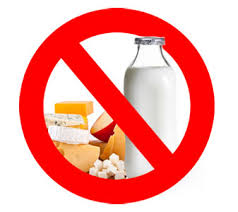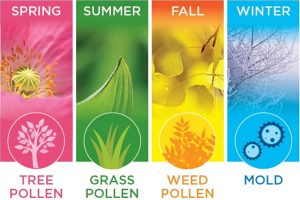Monthly Archives: December 2018
Milk Allergies in Babies
Milk Allergies in Babies: What are Your Options?
 Having to deal with a milk allergy at a time when your baby needs it the most can be a challenge. Milk free formulas are not as popular as traditional ones and you’ll have to do a little bit of leg work to find alternative solutions. While they aren’t as common however, it doesn’t mean that they can’t be found if you know where to look. In this article, we’re going to give you a few options in case your child is suffering from a milk allergy.
Having to deal with a milk allergy at a time when your baby needs it the most can be a challenge. Milk free formulas are not as popular as traditional ones and you’ll have to do a little bit of leg work to find alternative solutions. While they aren’t as common however, it doesn’t mean that they can’t be found if you know where to look. In this article, we’re going to give you a few options in case your child is suffering from a milk allergy.
Go with Breastmilk
Breast milk is usually the best option if your child has been diagnosed with a cow milk allergy. For one, breast milk has the perfect balance of nutrients for your baby and boosts their immune system. Breastfeeding has also been correlated with lower incidences of sudden infant death syndrome.
Most experts will recommend breastfeeding your children for at least 6 months, with one year being the optimal length. The World Health Organization even recommends breastfeeding your child until they reach the age of two.
Look at Formula Options
If breastfeeding is not an option for you, there are non-dairy choices out there. But know that just because they don’t contain cow milk, doesn’t mean they won’t cause a reaction in your child.
Soy based formulas are a prime example. While they are completely derived from soy protein, between 8 and 14 percent of babies will have a reaction to it. Another option is heavily hydrolyzed solutions. While they are derived from milk, the protein is so broken down that the chances of them causing a reaction are diminished.
But if your child can’t tolerate a hydrolyzed formula, you could also go for formulas made from amino acids. These formulas are made from proteins and amino acids broken down to their simplest form and are usually less likely to cause a reaction.
Check if it’s Truly an Allergy
Making the distinction between intolerance, simple indigestion, and a full-on milk allergy can be complicated when you don’t know the difference between each. Sometimes, you could misdiagnose something as simple as an upset stomach as an allergy.
Make sure that you keep a journal of your baby’s symptoms and eating habits. If you breastfeed, you should also make sure that you record everything that you eat and whether it’s having an impact on your baby. You should also check your family history and see if food allergies run in your family.
If you think your child may actually be suffering from a milk allergy, consult an allergist so they can perform a diagnosis and provide some solutions. Contact us today to schedule an appointment with the best allergist in New York.
Allergist for Pollen Allergy
How to Survive During Pollen Season
While for some people, spring is all about revival, warmer days, blooming flowers and balmy breezes, for others, it’s a literal nightmare. Pollen is everywhere and while you can try to avoid it all you want, it usually not a viable option. However, there are some things you can do to prevent your immune system from going into overdrive and putting you out of commission. Here are a few simple tips that will help you survive pollen season.
Know if You’re Actually Dealing with Allergies
 Before you even think about pollen proofing yourself, you have to know if you’re dealing with seasonal allergies first and foremost. You might be simply be coming down with a seasonal virus masquerading as a full blown allergic reaction.
Before you even think about pollen proofing yourself, you have to know if you’re dealing with seasonal allergies first and foremost. You might be simply be coming down with a seasonal virus masquerading as a full blown allergic reaction.
First of all, monitor your symptoms. One of the easiest ways to tell if you’re dealing with a seasonal allergy is if congestion symptoms last over two weeks. If your mucus is clear and runny, your nose, eyes or the roof of your mouth is itchy or if the symptoms intensify when you’re in contact with pollen, then it’s a definite sign. And if you don’t have any fever or aches, then it’s another sign that it’s not a virus that’s at play.
Go to the Local Drugstore
Most of what you need to combat your seasonal allergies can be found right over the counter. Antihistamines will be your best friend in this case and will prevent histamines and all the unpleasantness that comes with them from affecting you. But be careful with nasal sprays, some of them are habit forming and may make matters worse.
In some cases, though, OTC medication might not be enough, so you’ll have to consult an allergist for some stronger, non-sedating, medication. Or you might want to try immunotherapy if symptoms are too severe or if you want a more long-lasting solution.
Take Off Your Outside Clothes Once You Get Home
Your clothes become pollen carriers when you go out and it would be wise to take them off and quarantine them if you don’t want to drag these allergens inside. Take your shoes off outside and throw your outdoor clothes straight in the hamper. Take a nice shower at night to make sure that your hair and body is clean of any remaining pollen. And if you have furry friends, make sure that they clean their paws before they come inside; their feet can be powerful carriers as well.
If you feel like you need stronger treatment for your allergies or if the symptoms are just too much to bare, we strongly suggest that you talk with an allergist for help. If you want more information on seasonal allergies, contact us today to schedule an appointment with the best allergist in New York City.
Serving all of New York City and the Tri State Area including Zip Codes: Top Allergist NYC Midtown, Chelsea and Clinton: 10001, 10011, 10018, 10019, 10020, 10036 | Gramercy Park and Murray Hill: 10010, 10016, 10017, 10022 | Greenwich Village and Soho: 10012, 10013, 10014 | Lower Manhattan: 10004, 10005, 10006, 10007, 10038, 10280 | Lower East Side: 10002, 10003, 10009 | Upper East Side: 10021, 10028, 10044, 10128 | Upper West Side: 10023, 10024, 10025
